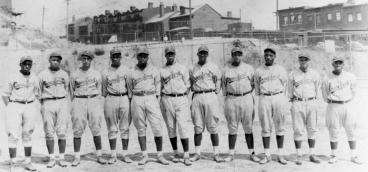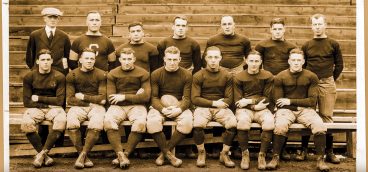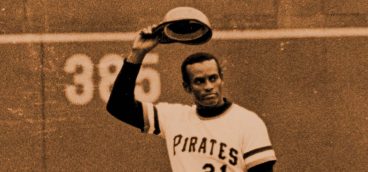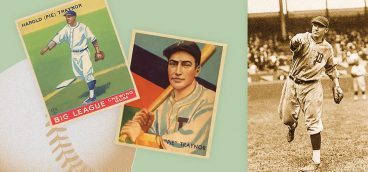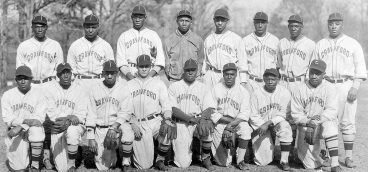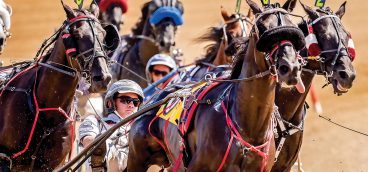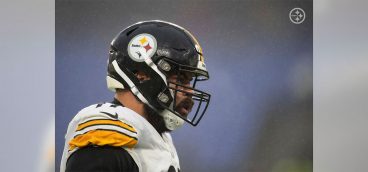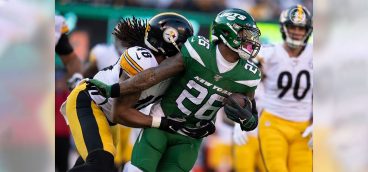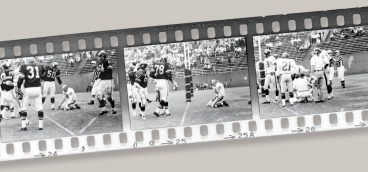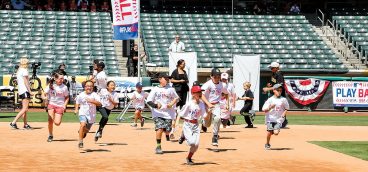1972: Triumph and Tragedy for Pittsburgh Sports Fans
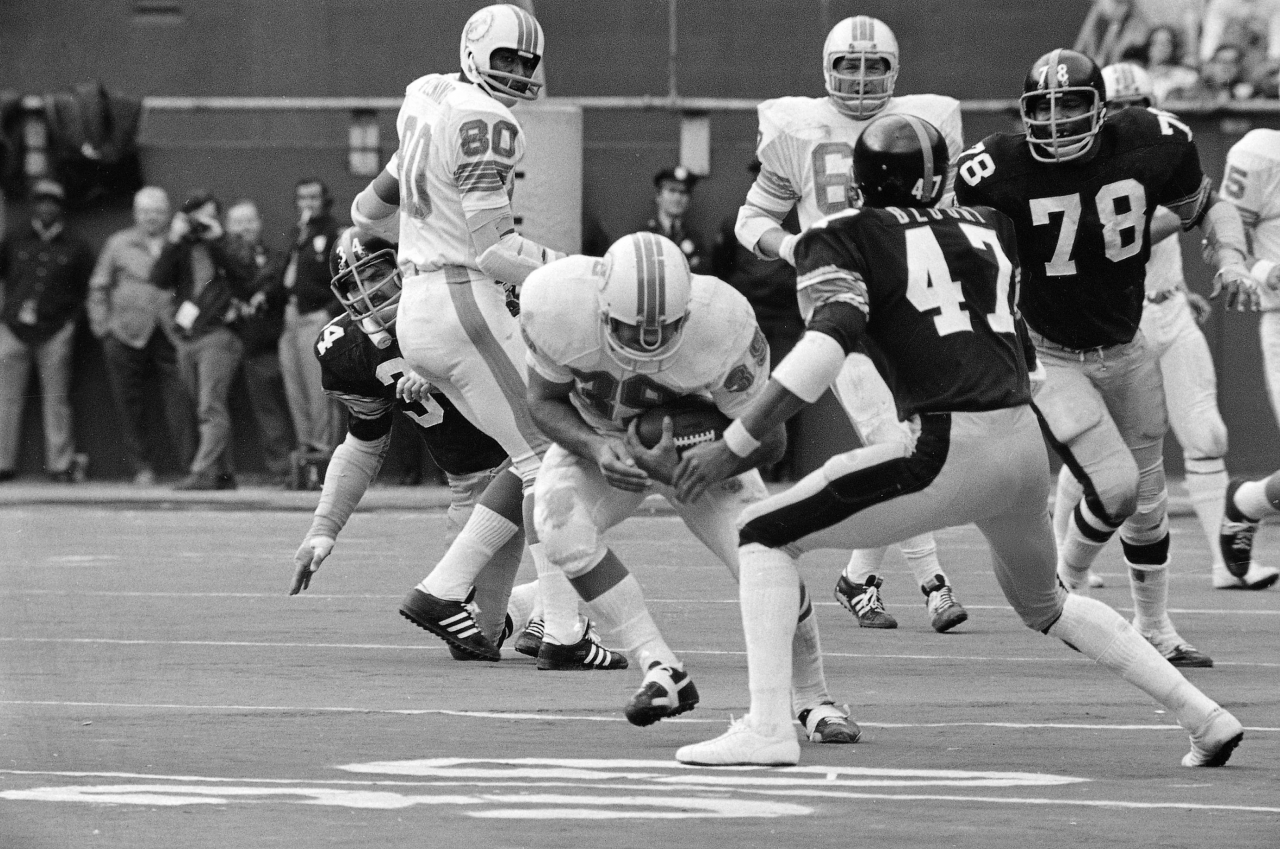
The new decade had started off well for Pittsburgh sports fans. In January 1970, the Steelers used the top pick in the NFL draft to select Terry Bradshaw, a strong-armed quarterback from Louisiana Tech. Drawing comparisons to the comic strip character Ozark Ike, he looked to have the talent to lead the Same-Old-Steelers, after decades of mediocrity and failure, to an NFL championship.
A few months later, the Penguins made the Stanley Cup playoffs in only their third NHL season. Led by gifted rookie Michel Briere, they swept the Oakland Seals in the first round of the playoffs before losing to the St. Louis Blues. Briere was outstanding in the playoffs and looked capable of bringing the Stanley Cup to Pittsburgh.
Pirate fans also had reasons to be hopeful. Danny Murtaugh had returned to manage the Pirates in 1970, and, by mid-season, they’d moved into a new home at Three Rivers Stadium. With a combination of veterans and rookies, they played their way into the post-season for the first time since 1960. Though they lost to the Reds, they seemed in a strong position in 1971 to bring Pittsburgh its first World Series victory since 1925.
The Pitt football program had gone through a horrible stretch of losing seasons in the late 1960s, but their fans hoped that the hiring of Carl DePasqua for the 1969 season would lead them back to national prominence. Drafted by the Steelers in 1950 after an outstanding career at Pitt, DePasqua had been an assistant coach with Pitt and the Steelers before becoming Pitt’s head coach. Under DePasqua, Pitt had suffered a disappointing 4-6 season in 1969, but in 1970, went 5-5, including a miraculous 36-35 win over arch-rival West Virginia after trailing 35-8. Though Pitt lost its last four games, its 5-5 record had fans hoping that 1971 would be Pitt’s first winning season in several years.
By the end of 1971, Pittsburgh sports fans were in a wonderful mood. The Pittsburgh Pirates had delivered an early Christmas present by winning the World Series that fall over the favored Baltimore Orioles. There were plenty of World Series heroes, including the popular Steve Blass, but the 1971 World Series belonged to Robert Clemente, whose extraordinary performance proved his greatness to the baseball world. The only sad note was the resignation of Danny Murtaugh because of his failing health.
The Steelers had suffered through another losing season, their third straight under Chuck Noll, but there were signs in the 1971 season that they were on the verge of becoming a championship team. With Terry Bradshaw improving after a disastrous rookie season in 1970, the Steelers were actually tied with the Cleveland Browns for the Central Division title, before losing three of their last four games to finish at 6-8. The Rooney family felt so confident that they extended Noll’s contract for another three years.
Things, however, had not gone well for the Penguins and for Pitt football. On April 13, 1971, Michel Briere, in a coma since he suffered a severe head injury in a car crash a year earlier, died after four brain surgeries. Without Briere, the Penguins had failed to make the playoffs in the 1970-1971 season, but they had acquired a rising star, Syl Apps, from the New York Rangers, and hoped he would lead them back to the playoffs.
While Penguin fans were hopeful, Pitt fans were disgruntled and worried about their football team. After the promise of the 1970 season, Pitt dropped back to a disappointing 3-8 in 1971. DePasqua managed to hold on to his job, but, if Panthers didn’t have a winning season in 1972, it was likely that DePasqua would be fired.
Fifty years ago, when Pittsburgh sports fans lifted their bottles of Iron City beer to toast the Pirates and welcome in the new year, they certainly had no idea that 1972 would be both miraculous and tragic for Pittsburgh sports teams. It would be the year that the Pirates, the Steelers, and the Penguins would make the playoffs, but Pitt, at 1-10, would suffer its worst season in its history and begin the search for a new coach. It would also be the year that began with the loss of a baseball legend and ended with the greatest tragedy in Pittsburgh sports history.
The year started on a positive note when the Penguins, while ending the season with a losing record, managed to finish fourth in their division and returned to the playoffs after a one season absence. While they lost to the Chicago Blackhawks in the quarter-finals, the play of young stars Syl Apps, Jean Pronovost, and Greg Polis gave Penguin fans reason to be hopeful.
With Bill Virdon replacing Danny Murtaugh, the defending World Series champion Pirates were in a confident mood as they opened spring training, but on March 16, they lost Pie Traynor, one of the most popular players in franchise history. when he died at the age of 73. Named the greatest third baseman in baseball history in 1969 as part of baseball’s centennial celebration, Traynor had thrown out the first baseball at the third game of the 1971 World Series and, over the years, had been a frequent presence at the Pirates spring training camp.
After mourning the loss of Traynor and surviving a labor dispute that cost baseball the first seven games of the 1972 season, the Pirates opened in New York with a disappointing 4-0 loss to Tom Seaver and the Mets and were under .500 after the first few weeks of the season. But in mid-May, they went on a tear and, by mid-June, they were in first place in their division. The Pirates remained in first place for the rest of the season and, at season’s end, were poised to repeat as World Series champions, something no team had accomplished in Pirates history.
After easily winning their division, the only mystery left was whether or not Roberto Clemente would join Honus Wagner and Paul Waner and become the 11th player in baseball history to reach 3,000 career hits. On Saturday September 30, he lined a double into the left-center field gap off Met’s pitcher Jon Matlack for his 3000th hit. It would be Clemente’s last regular season hit.
A little more than a week later, On Wednesday, October, 11, the Pirates were three outs away from sending Clemente back to the World Series. Tied in games at 2-2 in a best-of-five-game National League Playoff Series, the Pirates led the Reds 3-2 in the bottom of the ninth, but Johnny Bench led off with an opposite-field home run off Dave Giusti to tie the score. With two outs and the winning run on third, Bob Moose threw a wild pitch that sent the Reds to the World Series and the Pirates and their fans into a state of despair.
The following Sunday the Steelers lifted the spirits of Pittsburgh sports fans with a 24-7 win over the Houston Oilers to raise their record to 3-2. Sparked by the Steel Curtain defense and the running of Penn State rookie Franco Harris, they won their next four games and, after a loss to the Browns in Cleveland, won their last four games, including a crushing 30-0 defeat of the Browns. Their 24-2 win over the Chargers in San Diego on December 17 gave them the Central Division Championship, their first title in franchise history, and sent them into the NFL playoffs.
On December 18, just one day after the Steelers victory, rumors were circulating at the Liberty Bowl in Memphis that Iowa State head coach Johnny Majors would officially resign at the end of the game that night and had already signed a contract to coach the Pitt Panthers. The next day, Majors was in Pittsburgh for a news conference attended by Pitt chancellor Wesley Posvar and athletic director Cas Myslinski at which he declared “I will do anything it takes to bring winning football back to Pitt.” At the top of the list for Majors was recruiting Tony Dorsett, the sensational tailback from Hopewell High School in Aliquippa.
While the hiring of Johnny Majors was good news, the attention of Pittsburgh football fans was on the upcoming playoff game on Saturday, just two days before Christmas, at Three Rivers against the Oakland Raiders. Steeler veteran Andy Russell pointed out that fans had always been vocal, “Until lately though, they spent the whole game booing and cussing us…. Now they are proud of their Steelers and there isn’t anything they wouldn’t do for a guy on this team. You want to win for people like that.”
After holding a pep rally Friday evening in front of the Hilton Hotel to distract and harass the visiting Raiders, Steeler fans at game time were in a frenzy. Every time Russell and the Steelers came on to the field, shouts of “Defense, Defense” rang down from the stands. The defense, as expected, dominated the Raiders offense in the first half, but when the Steelers offense struggled, the first half ended in a scoreless tie.
The Steelers offense finally put together a drive in the third quarter that ended with an 18-yard Roy Gerela field goal, and, after Mike Wagner recovered a Raiders fumble, added another field goal to take a 6-0 lead with just minutes left in the game. But the Raiders, sparked by quarterback Kenny Stabler, drove down the field and scored on a Stabler 30-yard scramble to give the Raiders a 7-6 lead with only 1:13 left in the game.
With only 22 seconds left and the Steelers at their own 40 yard line, Bradshaw went back to pass, shook off a tackler and fired the ball down field in the direction of Frenchy Fuqua. Just as the ball arrived, Jack Tatum slammed into Fuqua and that sent the ball ricocheting back up field. Seemingly out of nowhere, Franco Harris caught the ball at shoe top level and raced the remaining 40 yards into the end zone to give the Steelers the lead and seconds later a 13-7 victory and a match up at Three Rivers on New Years Eve with the Miami Dolphins.
After the game, the understated Chuck Noll said that Harris was in position to make what would become known as the Immaculate Reception because “good things happen to those who hustle.” As for Steeler fans, as Alvin Rosenstreet wrote in the Pittsburgh Post-Gazette on Christmas Day, “there are Steeler fans who probably awakened early and repeated over and over to themselves: ‘There is a Santa Claus.’”
In Pittsburgh, the upcoming New Year’s Eve’s AFC Championship game between the Steelers and the undefeated Miami Dolphins dominated the local news, but it was an event that happened several hours before the Immaculate Reception that dominated the national news. A devastating 6.3 magnitude earthquake had struck near Managua, Nicaragua. Over 5,000 people were killed or injured and hundreds of thousands more were left homeless. One of those who wanted to help Managua recover from the earthquake was Roberto Clemente.
When Clemente learned that supplies were not reaching earthquake victims, he decided to fly from Puerto Rico to Managua to make sure that supplies on the plane were properly distributed. On the afternoon of December 31, while the Steelers made critical mistakes in a 21-17 loss to the Dolphins, Clemente prepared to board a DC-7 loaded with supplies for Managua.
The Steelers’ loss, a week after the Immaculate Reception, cast a gloom on Pittsburgh celebrations for New Year’s Eve. Among those hosting parties that night were Steve Blass and his wife Karen. Their friends included Dave and Virginia Giusti, who lived only a few blocks away in Upper St. Clair and were going to stay overnight. On New Year’s Day the two couples planned to go together to an annual gathering hosted by Bob Prince.
At about 3 a.m., the phone at the Blass house rang. On the line was the Pirates publicity director Bll Guilfoile with horrifying news. He told Blass, “There was an unconfirmed report that there was a plane that went down in Puerto Rico and Clemente was on it.”
Blass and Giusti dressed hurriedly and drove to general manager Joe L. Brown’s house in Mt. Lebanon, where, in a state of disbelief, they tried to get additional information until they finally decided to drive to Willie Stargell’s home in Point Breeze where they heard reports confirming the worst. Eventually they drove to Bob Prince’s house where an annual party celebrating the new year turned into a wake.
In the remaining years of the 1970s, the Pirates, after struggling in 1973, would have winning seasons for the rest of the decade, including two trips to the playoffs in 1974 and 1975, before an aging Willie Stargell led them to a World Series victory in 1979. But they would also experience more tragedy when Bob Moose, on Oct. 8, 1976 died in a car crash after celebrating his 29th birthday. Just a few months later Danny Murtaugh, at the age of 57, died after years of struggling with poor health.
While the Penguins, beginning with the 1972-1973 season, would lead Pittsburgh fans on a roller coaster ride of winning and losing seasons and never advance beyond the Stanley Cup quarter finals for the rest of the decade, the Pitt Panthers, with their new coach and sensational running back, turned their program around and in 1976, with Tony Dorsett becoming the all-time leading rusher in college football, Johnny Majors led the Panthers to their first national championship since the days of Jock Sutherland.
The greatest triumph of the decade of the !970s, however, belonged to the Pittsburgh Steelers. After a disappointing loss to the Raiders in the 1973 playoffs, the Steelers would go on to win four Super Bowls. After years of watching the same old Steelers lose season after season, Steeler fans cheered on the first dynasty in Pittsburgh sports history.
By the end of the 1970s, Pittsburgh, once the city of losers, had become the City of Champions, its major sports teams winning four Super Bowls, two World Series, and a college football championship. But as new heroes emerged to thrill Pittsburgh sports fans, the 1970s also reminded fans of the mortality of our sports heroes and legends.



